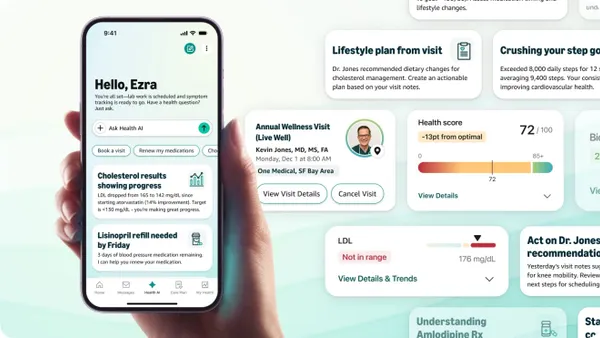Dive Brief:
-
European cardiology leaders called for healthcare systems to reimburse digital health devices and incorporate them into routine care in a paper published this week.
-
The European Society of Cardiology working group asserted digital health tools like smartphone-connected medical devices can help healthcare systems manage the growing chronic disease burden without exceeding constrained budgets.
-
Still, the group of cardiology experts identified barriers ranging from data privacy to reimbursement that regulators, payers, physicians and other parties need to work through before routine adoption of digital health technologies becomes reality.
Dive Insight:
European healthcare systems, similar to those across the world, face serious challenges created by the combination of rising prevalence of chronic diseases, aging populations and stagnating budgets. ESC, a group of cardiovascular disease specialists, thinks Europe is failing to utilize existing tools to better handle these challenges.
"We can manage by creating models of care that incorporate existing technologies, but the main reason this has not been done is that there is no shared strategy among national legislators, industry, hospitals, physicians and patient organizations," Enrico Caiani, a past chair of the ESC e-Cardiology working group, said in a statement.
The working group discussed these barriers in more detail in a paper published in ESC’s European Journal of Preventive Cardiology. The paper identified a lack of interoperability, concerns about the privacy and security of data and struggles to secure reimbursement as key barriers.
To clear these barriers, the working group is arguing for actions including the stimulation and support of research into the application of digital health technologies to cardiovascular disease. By running research programs designed to generate data for clinical and socioeconomic analyses, the working group thinks the cardiovascular field can gather the evidence needed to secure reimbursement.
The working group thinks the value piece of a product’s evidence base could be the most compelling element for insurers, leading it to call for more economic evaluations and implementation research. However, the experts want digital health developers to focus first on health outcomes, before then moving on to assess the value to insurers.
Other actions proposed by the working group include the creation of a software as a medical device category on app stores and the establishment of certification programs for cardiologists who want to make greater use of digital health technologies.













